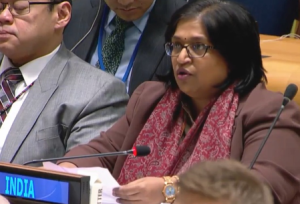Colorado governor aims to fill $640 million deficit with budget cuts.
Polis is asking for $17.8 billion in funding for state programs from the general fund.

Governor Jared Polis of Colorado is suggesting a year of budget tightening to offset the effects of decreasing inflation and rising Medicaid costs. In his budget proposal for the upcoming fiscal year, he addressed the projected shortfall of $640 million, which was primarily due to the high costs of caring for Medicaid patients. The state has also seen a decrease in expected revenue due to softer inflation. However, Polis remains optimistic about the impact this will have on Coloradans' checkbooks.
Presented on Friday afternoon, his budget proposal does not take into account the results of Tuesday's elections, which include some potentially costly measures on the state ballot. The newly elected legislature, who will also be chosen on Tuesday, will ultimately approve the budget for the upcoming fiscal year beginning on July 1.
As a Democrat in his final term, Polis is determined to address the projected shortfall and has requested a spending of $17.8 billion in the general fund, the main source of state program funding. The overall state budget would amount to $46.1 billion. He plans to make a supplemental request in January to reflect new economic forecasts and the results of the elections.
During a news conference, Polis stated that he hopes to cover the shortfall by gradually implementing the state's new school-funding formula, which was passed by lawmakers earlier this year. This formula aims to gradually increase state funding for schools, with a focus on providing more support for rural school districts and those with higher rates of students facing challenging circumstances. However, despite the delays in implementation, Polis assures that the overall funding for schools will meet the requirements set by the state constitution. This means that there will be no return to the budget stabilization factor, which has been used in the past to divert funds from education to other priorities.
In response to Polis' proposed delays in implementing the school-funding factor, House Minority Leader Rose Pugliese, a Colorado Springs Republican, expressed her concerns. She believes that there is still much work to be done to fully address the state's education needs and that the proposed reforms will take too long to take effect. Pugliese stated that Colorado families cannot wait seven years for an updated formula to be implemented and that students need real support now.
To ease the burden on the general fund, Polis also plans to utilize high interest rates collected on cash funds, which are generated from specific services and used for those services. This would provide approximately $118 million in savings. Additionally, he is requesting targeted cuts to some Medicaid provider rates that were excessively increased by the legislature last year. According to Mark Ferrandino, the governor's budget director, this may include rolling back some pay increases for adult dental care providers.
Another key aspect of Polis' proposed budget is the plan to transition Pinnacol Assurance, the state's workers' compensation insurer, into a private-sector business. Currently, the agency operates as a quasi-independent part of state government and is not competitive enough to write policies for out-of-state workers at Colorado companies. This change would also benefit the Public Employees' Retirement Association (PERA), which serves state workers.
Polis emphasized that his proposal is aimed at securing short-term budget needs through long-term and sustainable reforms. It does not touch the state's reserve fund of over $2 billion, which is at 15% of the budget. He stated that his team carefully reviewed the budget and identified areas where savings could be made without compromising major commitments.
To stay updated on Colorado politics, you can sign up for our weekly newsletter, The Spot.










